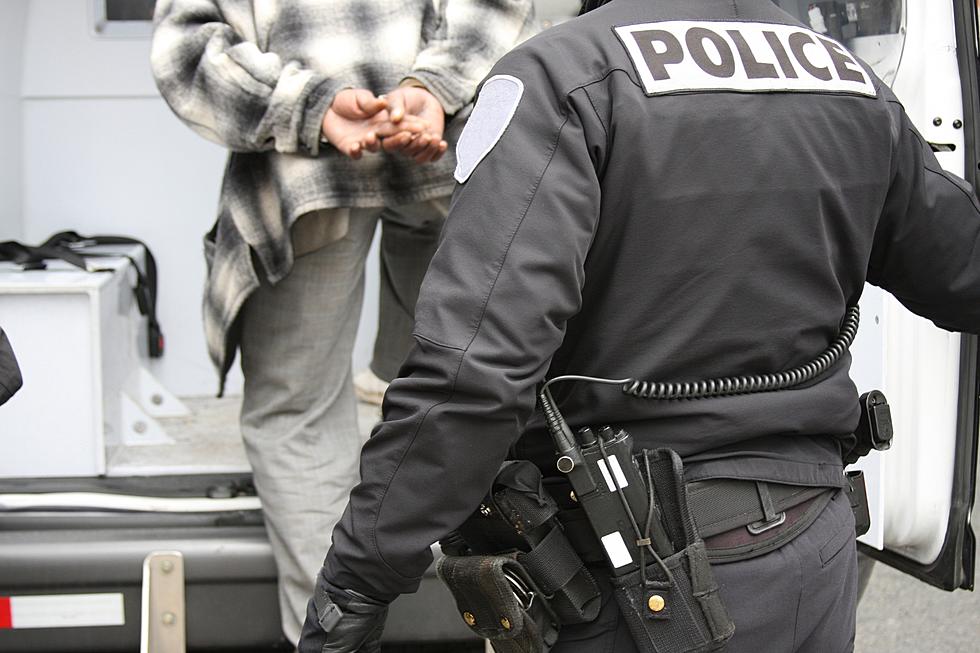
Wyoming U.S. House Candidates Sass The Feds, Snark On Each Other
Civility slipped into snark a few times among the candidates for Wyoming's lone U.S. House seat during a debate at Casper College on Thursday.
Four candidates stood at their podiums but Republican Liz Cheney and Democrat Ryan Greene dominated the discussions with the other contenders Libertarian Lawrence Struempf and Daniel Cummings of the Constitution Party.
And Cheney and Greene split along the fault lines of who's Wyoming the most, and who's moneyed the most.
The Republican, who moved her family from Virginia to Wilson a year ago, touted her fourth-generation Wyoming roots.
The Democrat from Rock Springs, who took a small family energy-related business and grew it to 250 employees, said he knows the state, its business and its families.
Two-thirds of the way through the 59-minute debate, candidates were asked about climate change.
Cheney scored Greene's unwillingness to confront the federal government's war on coal despite his work in the energy industry.
"He seems to think everything is just fine," she said. "Now not everybody in our state has the job security of being able to work in their parents' company for their whole career like my opponent."
Greene couldn't resist.
"Not everybody was given a job in the State Department because their father was the vice president," Greene retorted.
To which moderator Dale Bohren said, "time's up."
A couple questions later, panelist Erich Frankland of Casper College's political science department asked about the role of money in politics.
Greene saw an opening.
"This is a huge problem; we see it in this race," he said. "When Miss Cheney raises 90 percent of her funds outside of the state -- L.A., New York, D.C., and Chicago -- and let's be honest, folks, they don't give a hoot about Wyoming issues. They want a candidate that can push their agenda because they're investing in something."
Then it was her turn.
"I am proud to have raised 10 times more money in Wyoming than my competitors, and more money in Wyoming than all my competitors combined in the primary and in this general election," Cheney said.
Curiously, some of Cheney's criticisms of Greene were spoken in a context of a Hillary Clinton win on Nov. 8. GOP presidential candidate Donald Trump's name was not mentioned during the debate.
For example, Cheney said Greene may work in the energy industry, but he doesn't understand Washington's assault on Wyoming's mineral resources.
"We have to send someone to Washington who will lead an effort on behalf of our constitutional rights, on behalf of restoring our freedoms, on behalf of bringing back jobs to our state," Cheney said. "Not someone who is going to be a foot soldier in Hillary Clinton's or Nancy Pelosi's army."
============================================================
Questions of the candidates were heavy on economic issues, light on social issues, and nonexistent on foreign policy.
- The free market: Everybody liked it.
- The Minimum wage: Greene and Struempf favored increasing increasing it. Cummings said the government had no business messing with the free market. Cheney called the idea a "disaster."
- Poverty: Cummings said the Constitution says nothing about dealing with it. Cheney said the free market unshackled by federal regulations would solve it. Greene again pushed for a minimum wage increase. Struempf agreed with both Cheney and Greene.
- Environmental protection: Cheney said radical environmentalists have taken over regulatory agencies. Greene and Struempf want a balance of environmental and economic development policies. Cummings said bureaucrats in Washington don't understand western issues.
- Gun control: None of the candidates said the government has taken their guns. Cheney and Cummings warned of efforts to undermine the Second Amendment. Greene wanted to see more firearms education. Struempf said he's had a hard time finding .22-caliber ammunition.
- Political compromise and civility: Cummings said compromise in the past 50 years has always been leftward. Struempf blamed political polarization on the dominant two-party system and said America needs a viable Libertarian Party. Greene wanted to work with everyone. Cheney agreed it was important to work across party lines, but even more insisted that a U.S. House Representative should know where to stand and resist Hillary Clinton.
- Government surveillance: Everybody agreed privacy is primary. Cheney added the United States is at war with radical Islam and surveillance is a necessary weapon.
- Social Security: Cummings called it a Ponzi scheme because it needs more and more children to pay into it. Struempf advocated lifting the rate cap. Greene said it's not an entitlement because people paid into it. Cheney called Social Security a solemn obligation, but President Barack Obama raided it to pay for the Affordable Care Act.
More From 104.7 KISS-FM





![2 Chainz Defeats Nancy Grace In Marijuana Debate [VIDEO]](http://townsquare.media/site/147/files/2015/01/Nancy-and-2-Chainz.jpg?w=980&q=75)


